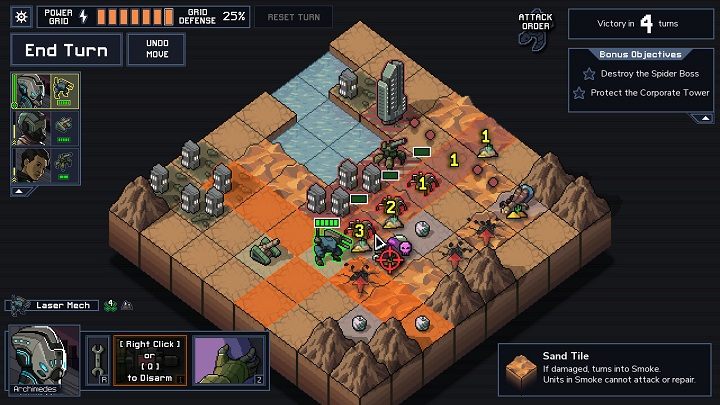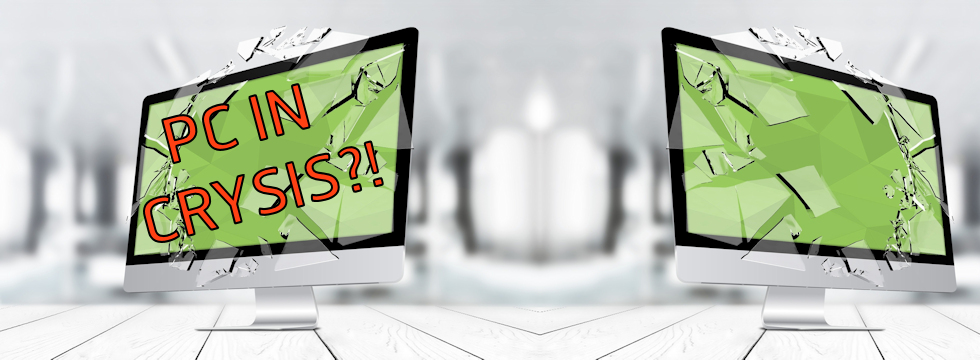Indies eaten away. State of PC 2019 – Crysis?
Table of Contents
It’s nothing new that indies are going through lean years lately, mainly because of Valve’s increasingly nonchalant policies on Steam. The platform used to be an alternative for a corporate career; it was the catalyst of the surge of popularity of games such as Don’t Starve, Terraria or Hotline Miami. Back then, however, a relatively small amount of games was released on Steam and it was easier to gain ground. Today, dozens of games of usually poor quality are released daily, and it becomes increasingly hard to even become noticed among such a landslide. Eve games from well-respected teams, such as Into the Breach by Subset Games or Return of the Obra Dinn by Lucas Pope can’t be certain of a spectacular commercial success.


Deluge and the flood
For the time being, there is not enough reliable data concerning the total number of video games that went to Steam during last year. However, if you trust SteamSpy, more than nine thousand games have been released through Valve’s platform in the past twelve months. This is more than two thousand more than in 2017, twice as many as in 2016, and seventeen times as many as in 2013. In November, 873 titles went to Steam, the most that have ever been released there in a single month. And there are no real prospects for improvement, to be honest; more than a hundred games have already made their debut on Steam in 2019.
Hence it hardly comes as a surprise that an increasing number of indie games are simultaneously released on PC and consoles. Last year’s high-profile examples include Celeste and Dead Cells, which only gained on their multi-platform releases, becoming quite popular. You could expect more and more developers and dev teams certain of their artistic vision to head over to the – so far – largely uncharted console territory.
And since we’re at it – there’s another important question we should address in relation to the state of PC gaming. Can you still remember the times, when Steam was basically the only platform for your every game? Those were the days, I tell you. If you want to play, say, FIFA, Fortnite, Assassin’s Creed Odyssey, Forza Horizon 4 and Monster Hunter: World, you have to prepare five different digital distribution platforms. It’s totally understandable that each big publisher wants to distribute their own game through proprietary channels; too bad that this comes at the price of the players’ comfort. In case of uPlay or Origin it’s only a matter of a few games, but look at Epic Games – they decided to throw down a gauntlet and challenge Steam, offering their own set of interesting indies and giving their creators a better deal.

I’m leaving thy sandbox, sir. And I’m taking my toys!
Last year, Activision stated that it didn’t need Steam and the latest Call of Duty was released via Battle.net. The second famous release, which bypassed Steam, was the infamous Fallout 76, whose predecessors eagerly used Valve’s platform. It is quite possible that other companies will follow suit, further undermining Gabe Newel’s giant.

The war between distribution platforms is also a bad omen for developers. Even if they’re offered a better deal, the hypothetical exclusivity surely will substantially decrease the number of potential buyers. The so-far Epic Games Store exclusives, Ashen and Hades, bring 90% of the profits to their creators, but you have to remember that the pool of potential consumers is much smaller than on Steam, which celebrated reaching 18,500,000 users online at the same time in January last year.
The PC has always been dying
There is, however, a silver lining. Pretty much since I remember, the PC has always been said to be doomed, usually when the next generation was around the corner. Meanwhile, years go by and PC gaming is not nearly a niche for a handful of desperate and nostalgic people. There still is a whole lot of great games being released on PC, even if 2018 was one of the worse years in terms of triple-A games, which indeed were mostly kept at bay. Maybe the PC is not the priority for devs and publishers, but in most cases, the console releases finally make it to the desktops. We can only hope that this doesn’t change anytime soon.

Another opinion
The industry works in cycles – right now, there are over 90 million PlayStation 4 consoles around the globe. Add to that a few dozen million Xboxes. The eighth generation has been in full swing, which translates into more secure profits in a rather straightforward fashion. This will last for some time until the next generation comes. Initially, it won’t be as appealing to publishers as the current gen is now, and it should be a good moment for the PC gaming to reclaim some lost ground, just to reach the same spot again. Unless streaming, the third world war or climate change shatters the current order.


